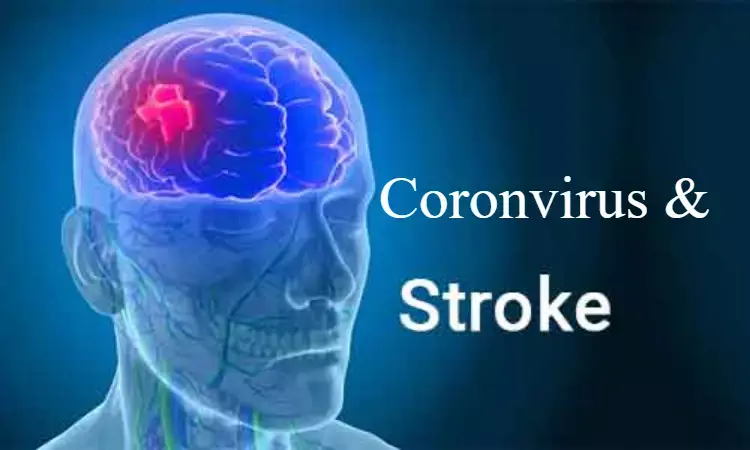- Home
- Medical news & Guidelines
- Anesthesiology
- Cardiology and CTVS
- Critical Care
- Dentistry
- Dermatology
- Diabetes and Endocrinology
- ENT
- Gastroenterology
- Medicine
- Nephrology
- Neurology
- Obstretics-Gynaecology
- Oncology
- Ophthalmology
- Orthopaedics
- Pediatrics-Neonatology
- Psychiatry
- Pulmonology
- Radiology
- Surgery
- Urology
- Laboratory Medicine
- Diet
- Nursing
- Paramedical
- Physiotherapy
- Health news
- Fact Check
- Bone Health Fact Check
- Brain Health Fact Check
- Cancer Related Fact Check
- Child Care Fact Check
- Dental and oral health fact check
- Diabetes and metabolic health fact check
- Diet and Nutrition Fact Check
- Eye and ENT Care Fact Check
- Fitness fact check
- Gut health fact check
- Heart health fact check
- Kidney health fact check
- Medical education fact check
- Men's health fact check
- Respiratory fact check
- Skin and hair care fact check
- Vaccine and Immunization fact check
- Women's health fact check
- AYUSH
- State News
- Andaman and Nicobar Islands
- Andhra Pradesh
- Arunachal Pradesh
- Assam
- Bihar
- Chandigarh
- Chattisgarh
- Dadra and Nagar Haveli
- Daman and Diu
- Delhi
- Goa
- Gujarat
- Haryana
- Himachal Pradesh
- Jammu & Kashmir
- Jharkhand
- Karnataka
- Kerala
- Ladakh
- Lakshadweep
- Madhya Pradesh
- Maharashtra
- Manipur
- Meghalaya
- Mizoram
- Nagaland
- Odisha
- Puducherry
- Punjab
- Rajasthan
- Sikkim
- Tamil Nadu
- Telangana
- Tripura
- Uttar Pradesh
- Uttrakhand
- West Bengal
- Medical Education
- Industry
Case Study Links Acute Ischemic Stroke with COVID-19 infection

PITTSBURGH - A case study published Thursday in the American Journal of Neuroradiology by physicians from Allegheny General Hospital (AGH) in Pittsburgh provides some of the first angiographic images documenting the rapid progression of acute ischemic stroke in a patient with the novel coronavirus (COVID-19).
The case study is the latest in a growing body of clinical observations and scientific evidence demonstrating a link between COVID-19 and the risk of stroke, particularly among individuals under the age of 50. Although definitive root causation is still to be determined, patients with severe cases of COVID-19 appear to be at a greater risk for blood clots. In addition, a recent study in The Lancet suggests the virus directly targets the endothelial cells that line blood vessels, which may also put the patient at risk for stroke.
An ischemic stroke can occur when vessels supplying blood to the brain are obstructed by clotting, leading to a potentially irreparable and fatal neurological injury.
"In some COVID-19 patients, we are observing that blood clots form at a notably fast pace," said Ashis Tayal, MD, neurologist and director of the Allegheny Health Network Stroke Center. "This manifestation of cerebrovascular ischemia can be particularly challenging for patients who are also experiencing severe respiratory distress and other medical issues associated with the virus."
The AHN case study, "Cerebrovascular Disease in COVID-19," documents a 64-year-old man who presented to the emergency department after waking up at home with symptoms of left-sided paralysis and shortness of breath. The patient had tested positive for COVID-19 16 days prior and was recovering well before his sudden onset of ischemic stroke. He passed away from complications of COVID-19 three days after admission to the hospital.
"The experience with COVID-19 to date world-wide provides a high degree of certainty that five to six percent of patients with severe cases may suffer a cerebrovascular injury. What's unique with our case is that the patient represented a subgroup where a stroke may occur in someone with atypical symptomatic onset. This patient was diagnosed with COVID-19 16 days prior to his stroke and was on his way to recovery from the virus before this suddenly occurred," said Michael Goldberg, MD, MPH, a neuroradiologist and Director of the Allegheny Health Network Division of Neuroradiology.
A recent case series of 214 COVID-19 patients from Wuhan, China published in JAMA Neurology (April 10, 2020, doi:10.1001/jamaneurol.2020.1127) reported that 36 percent of patients demonstrated neurologic manifestations, and acute cerebrovascular disease was reported in 6 percent of severely affected patients.
Similar observations have been made among COVID-19 patients in New York City. Physicians at Mt. Sinai hospital reported in the New England Journal of Medicine in May about a handful of patients under the age of 50 who had strokes within two weeks of being diagnosed with COVID-19 — a number that typically would be expected over the course of nearly seven weeks.
"As this pandemic progresses, we are learning more every day about how unpredictable this virus is in terms of its potential adverse impacts beyond the respiratory system," said Dr. Tayal. "Cerebrovascular injury is one such complication that can pose the most significant risk for a poor outcome among those who contract the disease, and which we will continue to focus on in our efforts to better treat it."
for further references log on to:
Dr Kamal Kant Kohli-MBBS, DTCD- a chest specialist with more than 30 years of practice and a flair for writing clinical articles, Dr Kamal Kant Kohli joined Medical Dialogues as a Chief Editor of Medical News. Besides writing articles, as an editor, he proofreads and verifies all the medical content published on Medical Dialogues including those coming from journals, studies,medical conferences,guidelines etc. Email: drkohli@medicaldialogues.in. Contact no. 011-43720751


